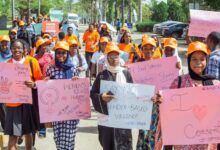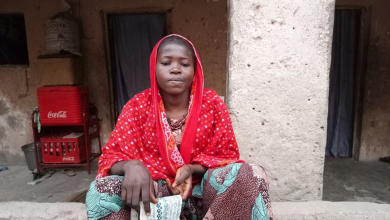
|
Getting your Trinity Audio player ready...
|
As the world moves toward gender equality, Nigeria continues to grapple with systemic barriers to women’s empowerment. Deep-rooted cultural traditions, patriarchal norms, limited access to education and economic opportunities, discriminatory laws, gender-based violence, societal expectations, political exclusion, and unequal domestic responsibilities drive gender inequality in the country.
The recent suspension of Senator Natasha Akpoti-Uduaghan after she accused Senate President Godswill Akpabio of sexual harassment underscores the persistent challenges women face in Nigerian politics and society. In response to such pressing issues, Dataphyte has released the Gender in Nigeria 2025 report, providing an in-depth analysis of the current state of gender equality in the country.
According to Adijat Kareem, the company’s Head of Policy Research Communications, the report primarily relies on data from the 2023-24 Nigeria Demographic and Health Survey (NDHS), published by the National Population Commission.
“Additionally, we used relevant data from the 2022 Statistics Report on Women and Men in Nigeria and the Multiple Indicator Cluster Survey 2021, both published by the National Bureau of Statistics,” Adijat stated. She noted that the findings compare gender issues in Nigeria between 2018 and 2023 using the latest NDHS data.
Key Findings from the Gender in Nigeria 2025 Report
- Gender-Based Violence
Reports of rape in Nigeria have surged dramatically, increasing from 29% in 2020 to 65% in 2022. Additionally, 48.2% of women believe that wife-beating is justified under certain conditions, reflecting deeply entrenched cultural norms that perpetuate male violence against women.
- Economic Participation
While 77.1% of women are active in the workforce, a significant 87.9% of them are confined to self-employment, which limits their access to formal wage employment. This highlights systemic barriers that restrict women’s economic empowerment.
- Digital Exclusion
Only 13.4% of Nigerian women have ever used a computer, compared to 21.8% of men, underscoring a significant digital divide that hampers women’s access to information and opportunities in the digital economy.
- Health and Reproductive Rights
A concerning 71.2% of married women lack autonomy in making decisions about their sexual and reproductive health. This severely limits their ability to make informed choices about their bodies and futures.
- Child Marriage & Trafficking
In Nigeria, 12.5% of women aged 15-49 were married before age 15. Furthermore, 77.3% of trafficked persons in Nigeria in 2022 were women, highlighting severe violations of women’s rights and freedoms.
A Call to Action
The alarming statistics must serve as a wake-up call to policymakers for stringent laws and implementation strategies. Civil society organisations must continue to advocate for women’s rights and all good Nigerians must hold one another accountable to ensure gender no longer dictates access to education, economic opportunities, or personal autonomy.






